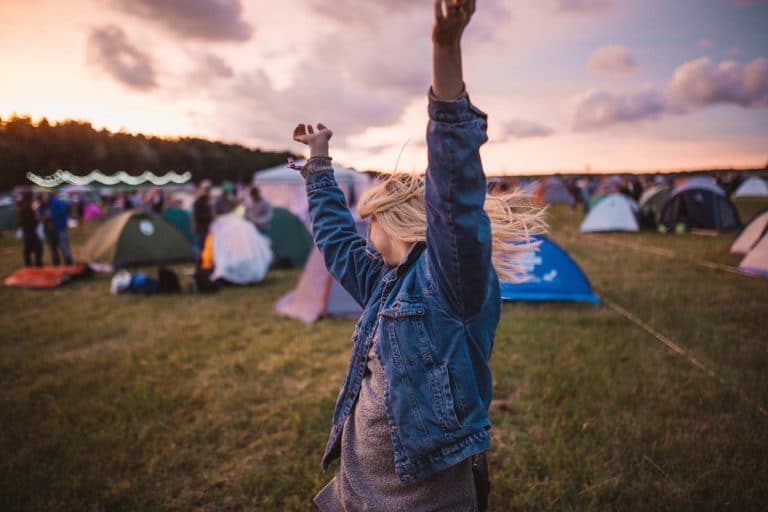Researchers are experimenting with COVID-safe festivals in Amsterdam

A group of researchers and event organisers in the Netherlands have received approval from the Dutch government to start working and see whether it might be possible to hold COVID-safe festivals and other large live music events. If the study ends up in success, you might soon be able to get slaughtered with your mates while standing in the crowd listening to a band you don’t actually know. Heavenly, am I right?
Before you start getting too excited however, that remains a big ‘if’, and even if it happened, what those festivals would actually look like will stay a very open question. The research pilot festivals, which are organised by the group called Fieldlab, are set to be held between 13 and 14 March in Walibi, a theme park an hour outside of Amsterdam.
The group got a whopping 100,000 applications, out of which only 3,000 people will be able to buy tickets. On both days, attendees will be split into three smaller groups, each of which will follow a different set of rules so that the results can easily be compared. In one group, for example, attendees will have to keep a 1.5 metre distance, while another group won’t have any distance requirement. All visitors, however, are told to behave like they would pre-COVID—where do I sign up?
All jokes aside, attendees will have to present a negative COVID-19 PCR test result taken 48 hours maximum before entering the festival and have their temperatures checked at the door, explained Maarten Schram, a member of Fieldlab, to Vice. Another 10 per cent of attendees will undergo on-site rapid tests. Attendees will then be asked to take another PCR test five days after attending and told to stay away from vulnerable groups until they receive their latest result.
“We had to create as safe a setting as possible to even be allowed to run this pilot in a lockdown situation, which is obviously quite unique,” Schram told Vice. “Beyond the other safety measures, we do air quality measures in the different tents. Very importantly, every guest is tagged with a personalised anonymised tracker so we can then analyse how people move in an event, how many people they interact with, and their behaviour. We combine this with anonymised video analysis as well.”
The researchers’ aim is to examine and test several paths for how events could happen in the future. If everything goes as planned, this trial could help event organisers figure out how to create safe events when a bigger audience is involved, just like in the good old days.
In the Netherlands, this isn’t the first attempt at studying whether large in-person events can be held safely during the pandemic. The pilot festivals are in fact just the most recent in a string of trials conducted by Fieldlab, including an indoor cabaret performance with 500 attendees and two football matches, each with 1,500 attendees. Both went successfully, the group said.
Meanwhile, other countries have tried similar experiments as well. In Spain, for example, the popular Primavera Sound festival held a trial event with 1,047 people last December in coordination with the University Hospital Germans Trias i Pujol. After the participants were tested eight days later, none of the members of the experimental group tested positive, while two members of the control group did.
In August, professor Michael Gekle, dean of the Faculty of Medicine at the University of Halle in central Germany, was part of a team of scientists that oversaw a 1,200 person indoor trial concert. They concluded that, with proper measures in place such as mask use, proper ventilation, a checkered seating pattern, and enough entrances and exits, such an event could take place with minimal risk of infection.
Other epidemiologists like Michael Edelstein—a professor and infectious diseases expert at Bar-Ilan University in Tel Aviv, Israel—argue that even the measures being trialled in the Netherlands and Germany aren’t enough to safely hold music festivals. Experiments that may work well on paper can differ from real world application, he explained.
“There are many factors that will change from one event to another including the composition and behaviour of the audience (people behave differently when participating in a study, an effect known as the Hawthorne effect), airflows owing to the physical characteristics of each specific venue… we also know that most COVID-19 cases do not transmit the virus to other but a smaller number of ‘superspreaders’ infect many others,” Edelstein told Vice.
In other words, not to rain on your parade, but it is clear that more research needs to be done in the field. On top of that, government investment wouldn’t hurt. “We are planning in this direction. Yet as always it’s a matter of resources,” said Gekle. Glasto who?





